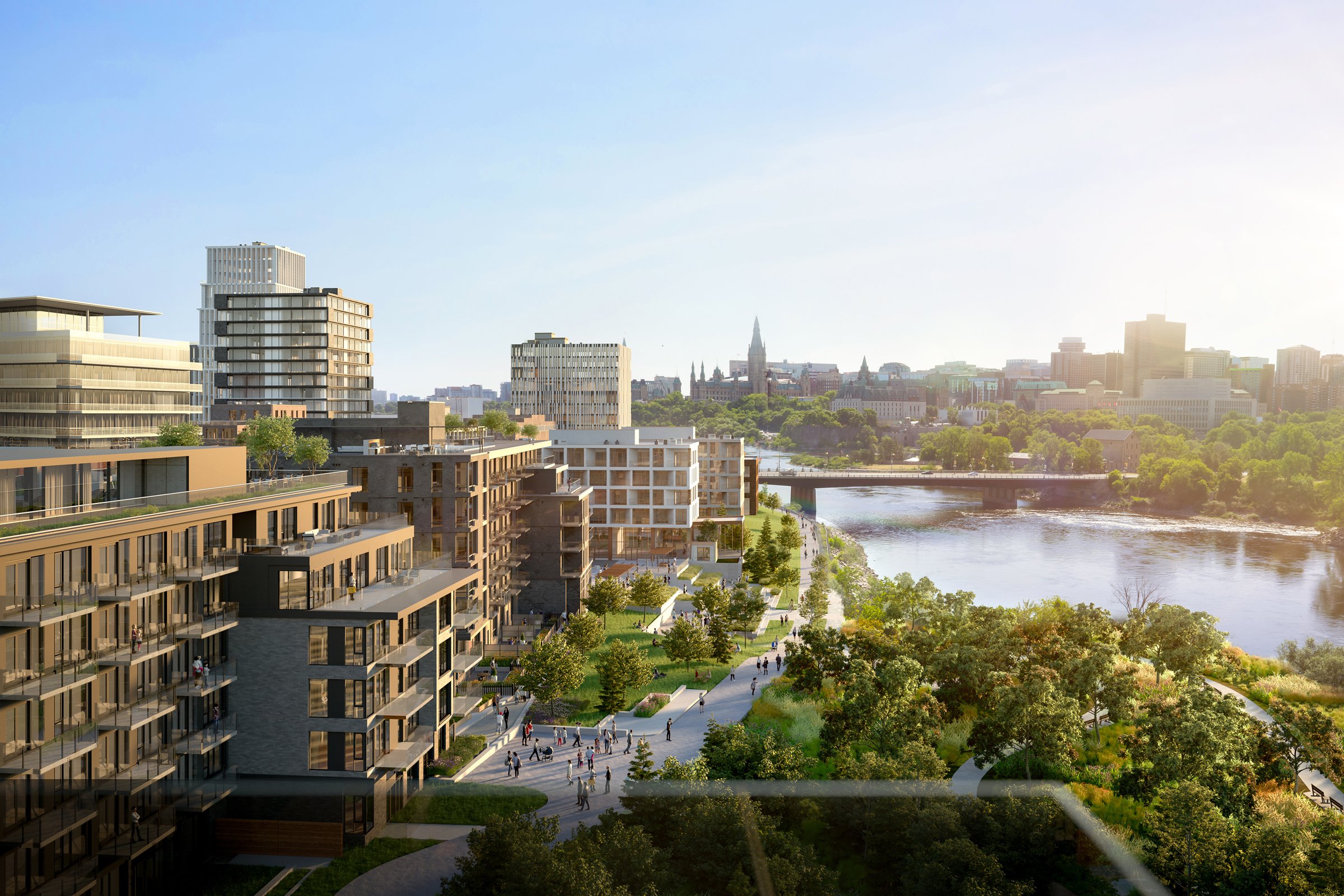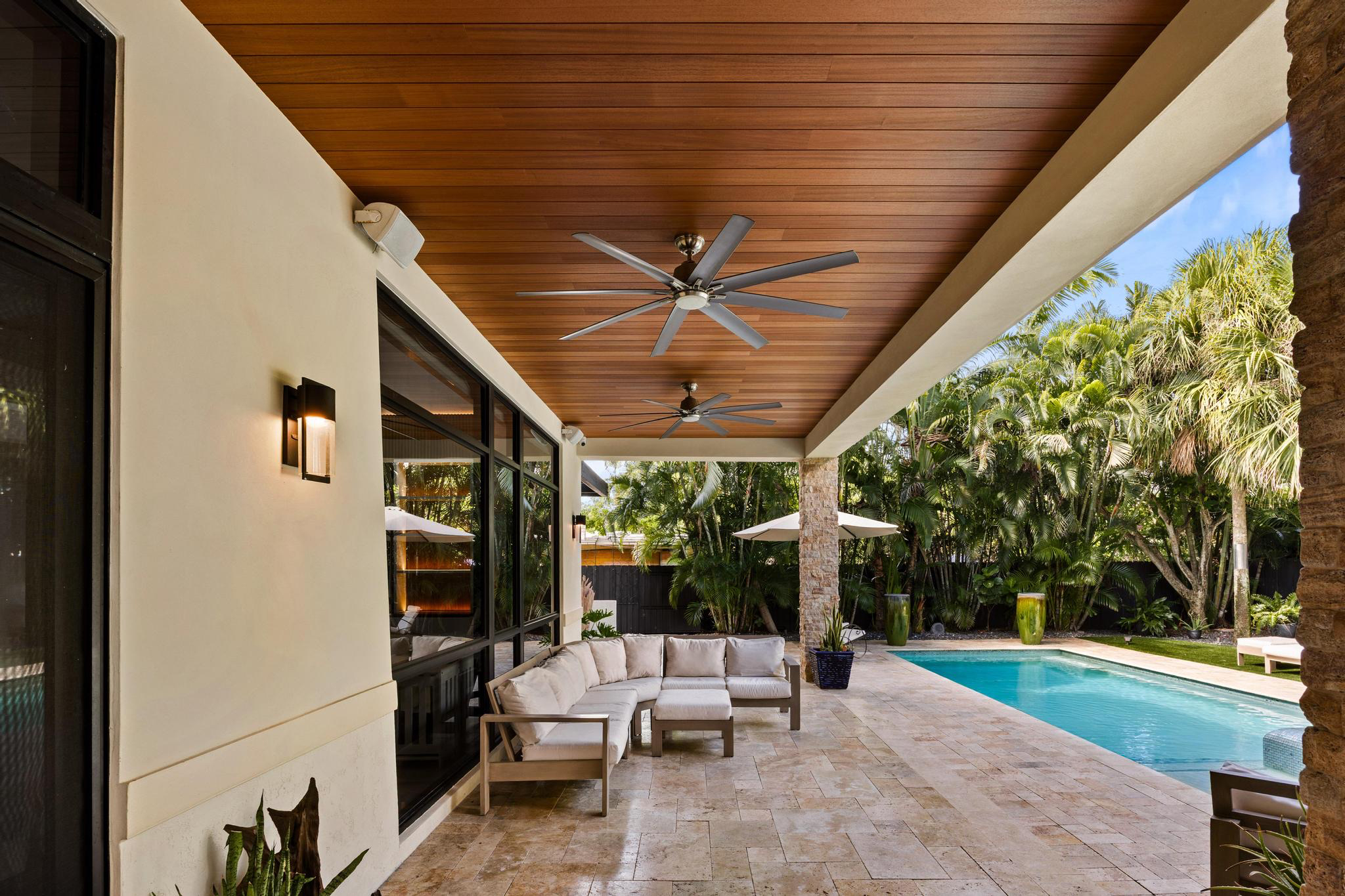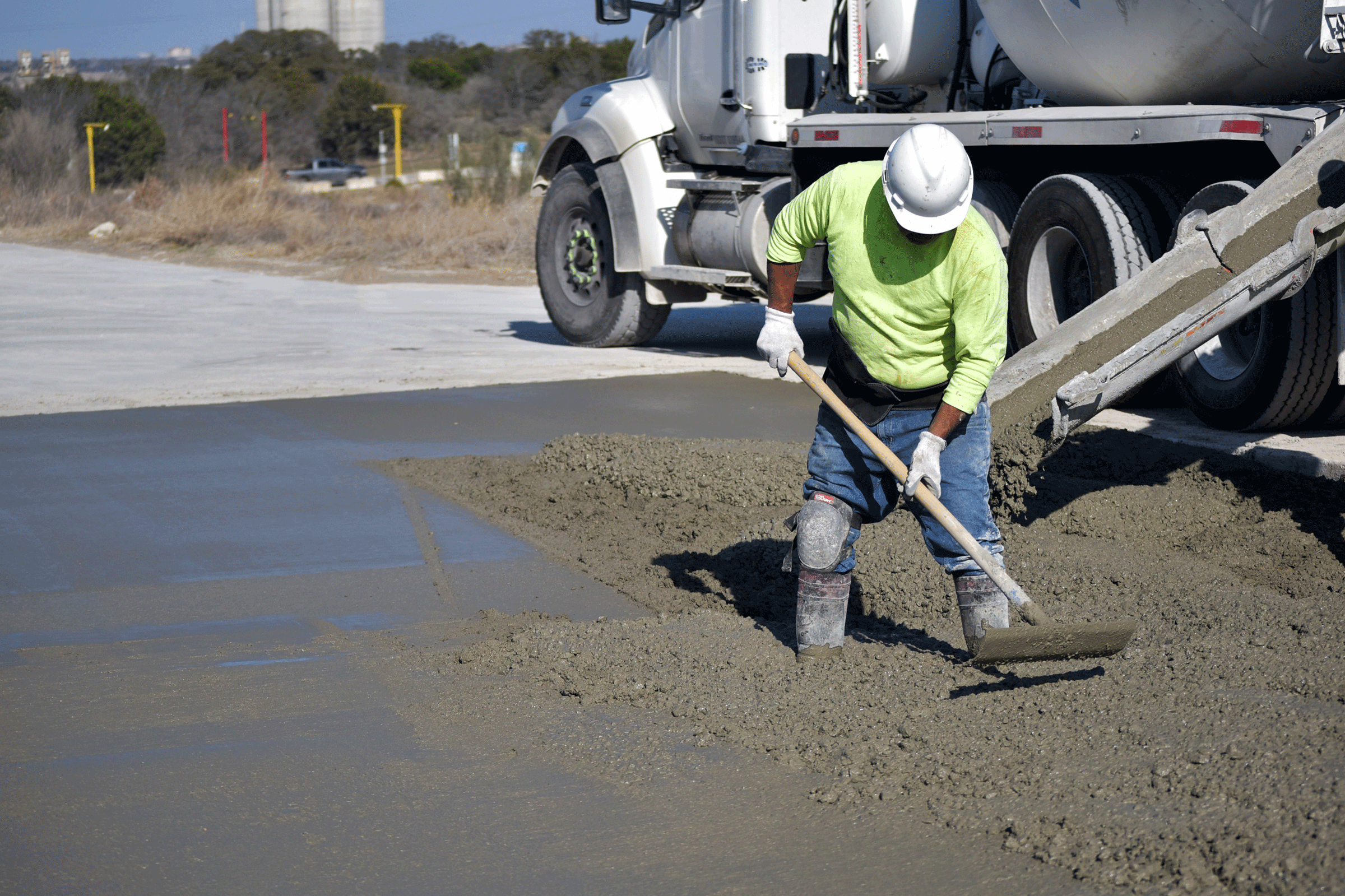Story at a glance:
- Work has begun on a mixed use, sustainable community that crosses provinces, cities, and founding nations in Canada.
- At 100% net zero carbon with the Zibi District Energy System, Zibi sets out to be one of the most sustainable communities in the world.
- Dream Unlimited, Dream Impact Trust, and Theia Partners are partnering on the planned community.
A new 34-acre master-planned community could change the way we approach city planning, from working across cities and governments to considering what it really means to develop sustainably and consider things like walkability. Called Zibi, this planned community is set to become Ottawa’s first carbon-neutral community.
“Zibi is the only community in Canada to straddle two provinces, two cities, and three founding nations. As a result, the project required collaboration with the Algonquin Nation and three levels of government, including the National Capital Commission, which is involved with Zibi’s parks and public realms. Fortunately all our partners have been collaborative and the project has progressed well,” says Jeff Westeinde, president of Zibi, the sustainable mixed use development now in process.
Westeinde says the effort to transform a derelict site first settled 200 years ago into Canada’s first One Planet-endorsed sustainable community was challenging. The site was long used for industrial purposes. “This transformation has involved significant demolition, preservation, and site remediation across 34 acres to allow for the development of a full mixed-use sustainable community,” he says.
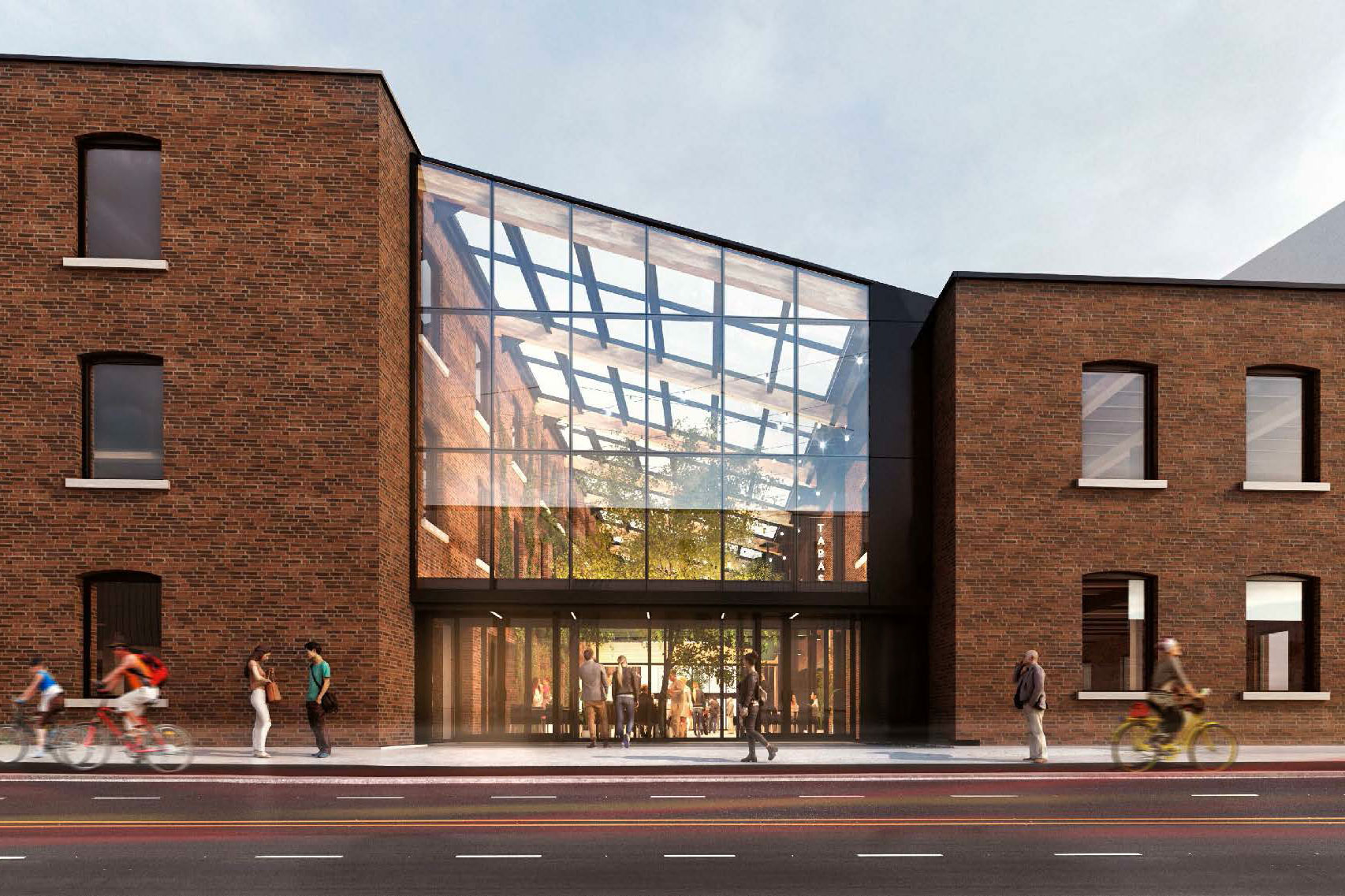
Restored brick and beam commercial building by Sid Lee Architecture. Rendering courtesy of Zibi
Originally home to the Algonquin Anishinaabe Peoples, Westeinde says the site ultimately became a hub for North American lumber, pulp, and paper production. “The waterfront site was industrialized and closed to public access for the past 100-plus years. It was made up of dozens of large industrial buildings and heavily contaminated soil,” he says.
Westeinde says Zibi has already transformed the site by decontaminating and remediating all of the soil. Industrial buildings that were a blight on the waterfront have been demolished while heritage or other salvageable buildings have been preserved and refurbished in order to maintain and celebrate the site’s historical feel, he says.
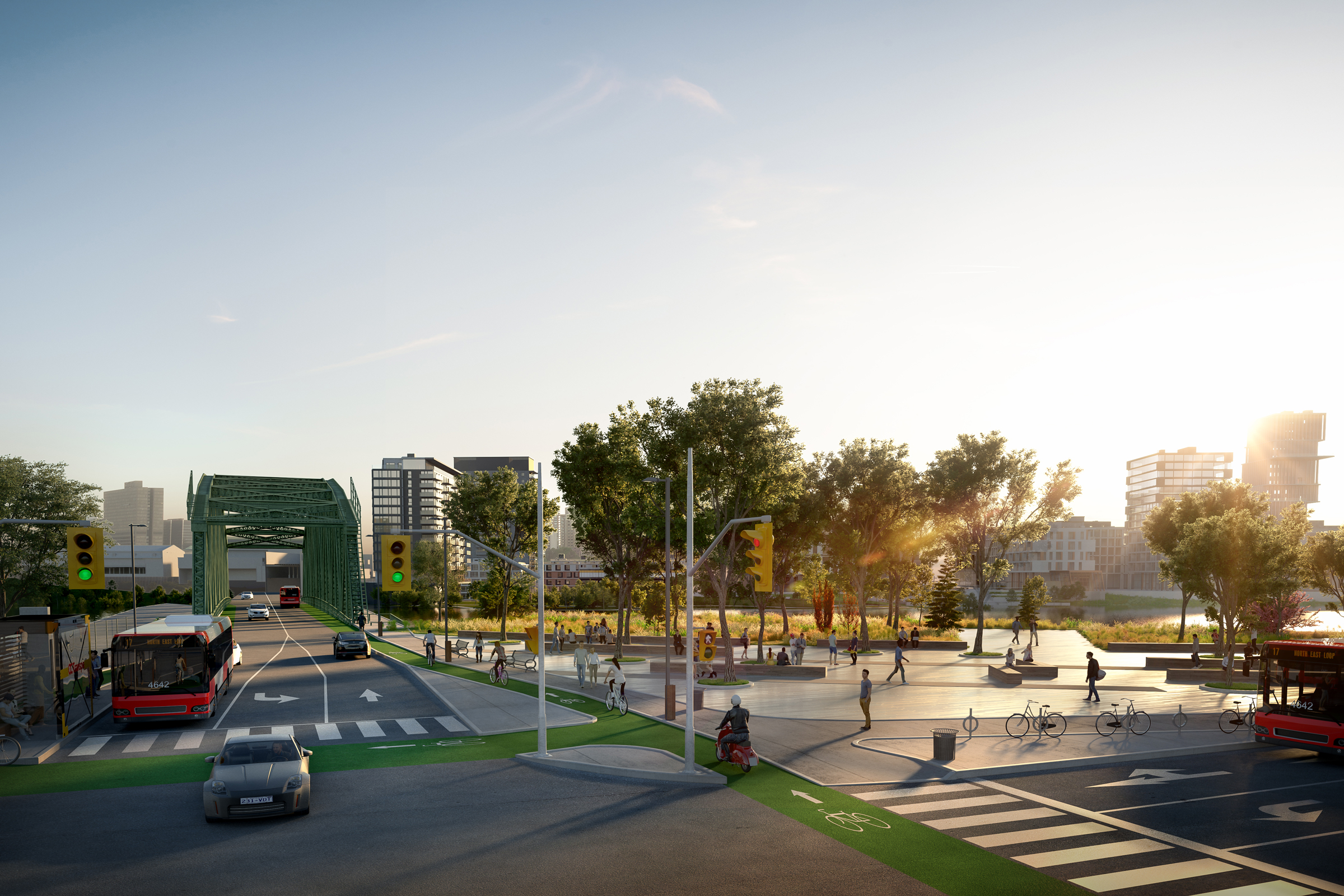
Zibi aims to achieve a Community Walkscore greater than 90 by 50% of project completion. Rendering courtesy of Zibi
Westeinde points to an award-winning master plan as well as the One Planet Action plan, which focuses on 10 guiding principles, from sustainable transportation to zero waste, for how Zibi will unfold. Zibi also follows the United Nations’ Sustainable Development Goals. “We have also assembled a world-class team of remediation experts, including a local Indigenous company, to carefully coordinate demolition and remediation activities with required new construction for our community,” he says.
The plan also outlines a commitment to features like electric car charging stations, a high community walk score, reduced potable water use, repurposed building materials, reduced reliance on unsustainable wood sources, and more.
Green space, too, will be abundant. “Parks and plazas are in development comprising 22% of the overall site, encouraging active, social, meaningful lives to promote good health and well-being. Two residential buildings have already been erected, with one more close to completion as well as a purpose-built office building.”
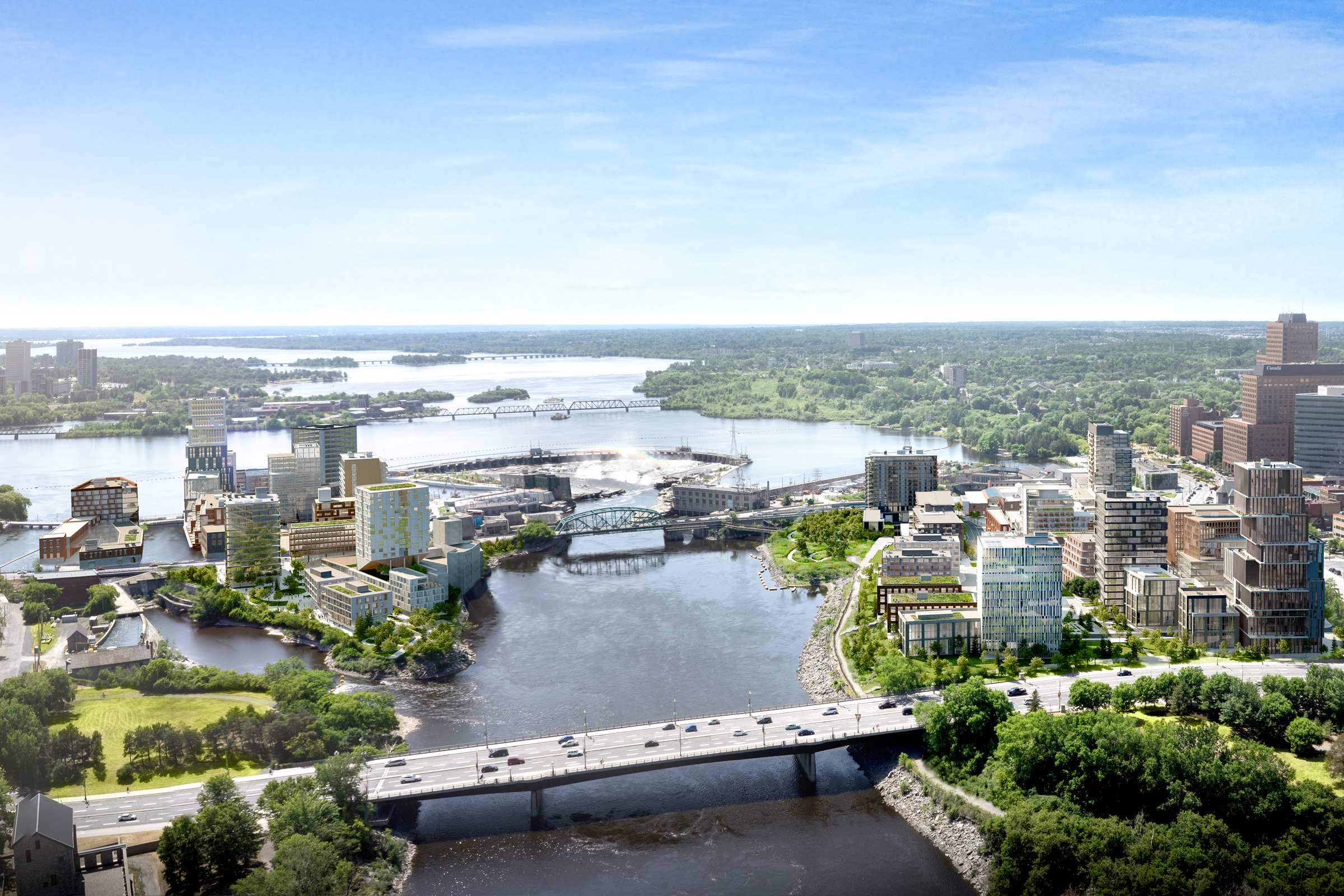
Zibi overlooks the Ottawa River and will be home to more than 5,000 people and 6,000 jobs on the border between Ontario and Quebec. It’s next to the Chaudière Falls, in the heart of the National Capital Region, and connected by the Chaudière bridge. Rendering courtesy of Zibi
The community overlooks the Ottawa River and will be home to more than 5,000 people and 6,000 jobs on the border between Ontario and Quebec. It’s next to the Chaudière Falls, in the heart of the National Capital Region, and connected by the Chaudière bridge. The plan is to create a central hub with millions of square feet of commercial space, including plaza and riverside retail (50+% local). The team behind the plan says it should be a place that, with nearly eight acres of riverfront green spaces, everyone can enjoy, including tens of thousands of visitors.
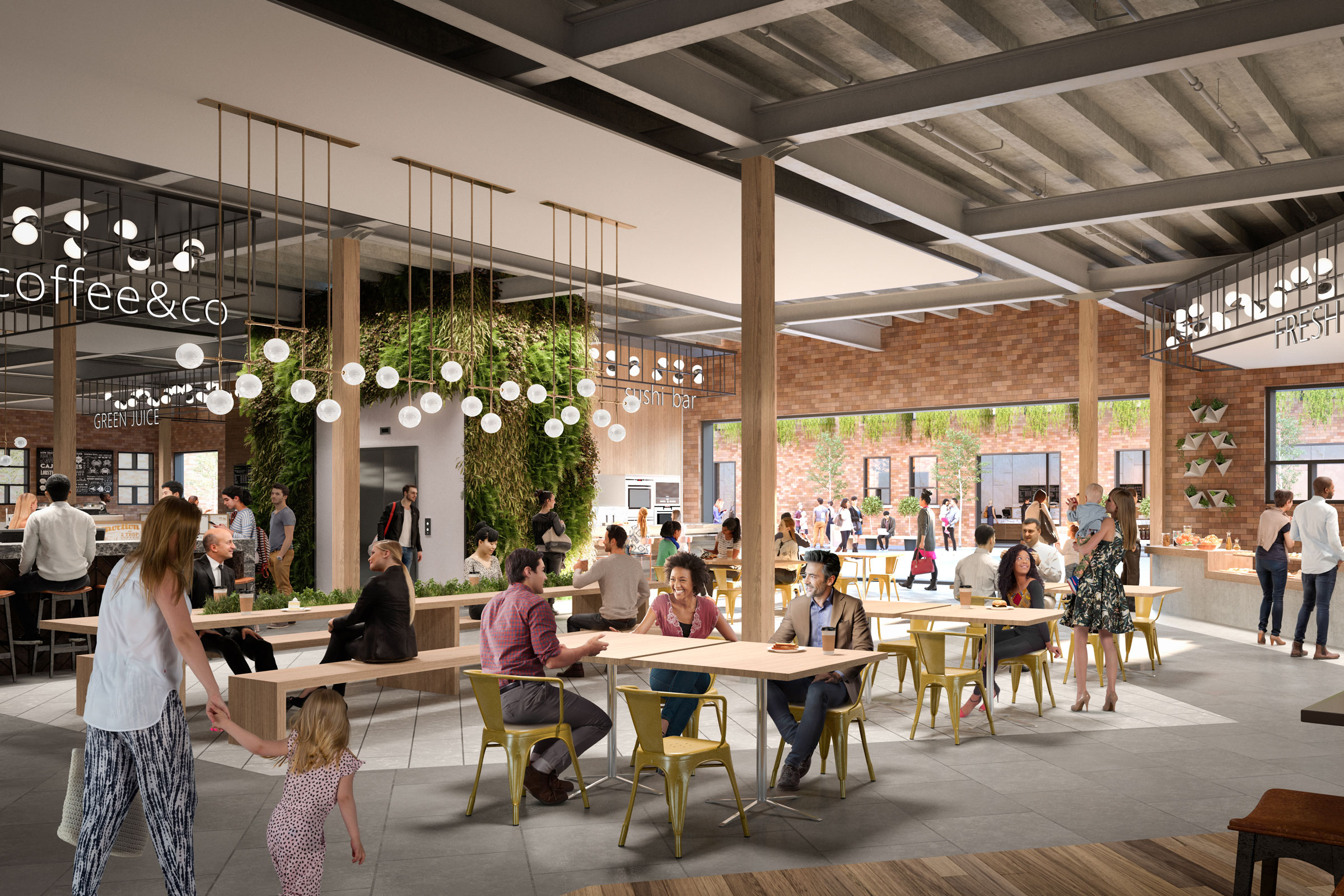
Zibi aims to create a central hub with millions of square feet of commercial space, including plaza and riverside retail (50+% local). Rendering courtesy of Zibi
Dream Unlimited, Dream Impact Trust, and Theia Partners are partnering on the planned community. Once in operation, the community will be zero carbon. The Zibi Community Utility is a District Energy System relying on energy recovery from effluents from Kruger Products’ Gatineau Plant for heating and the Ottawa River for cooling. The system, developed by Zibi, will provide zero carbon heating and cooling for all Zibi tenants and residents.
“When it is completed, Zibi will be a borderless neighborhood, connecting the cities of Gatineau and Ottawa,” Westeinde says. “At 100% net zero carbon with the Zibi District Energy System, it will be one of the most sustainable communities in the world, and the first in Canada to receive One Planet Living certification, a global framework developed by Bioregional and the World Wildlife Fund.”

